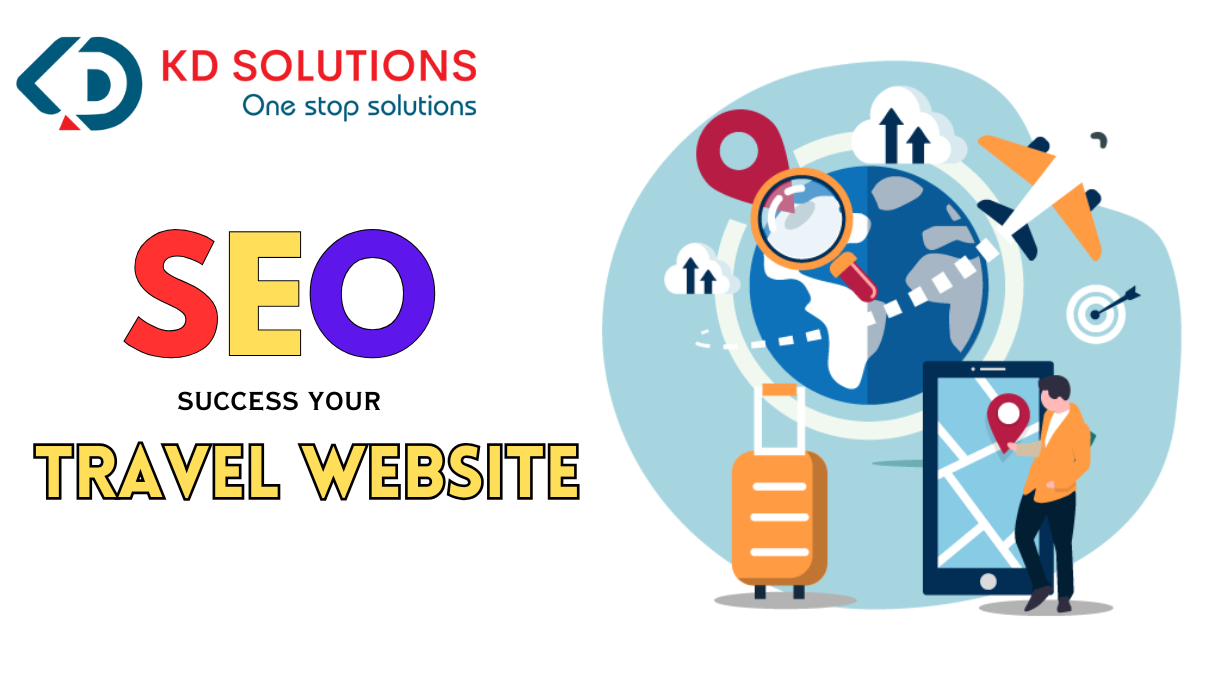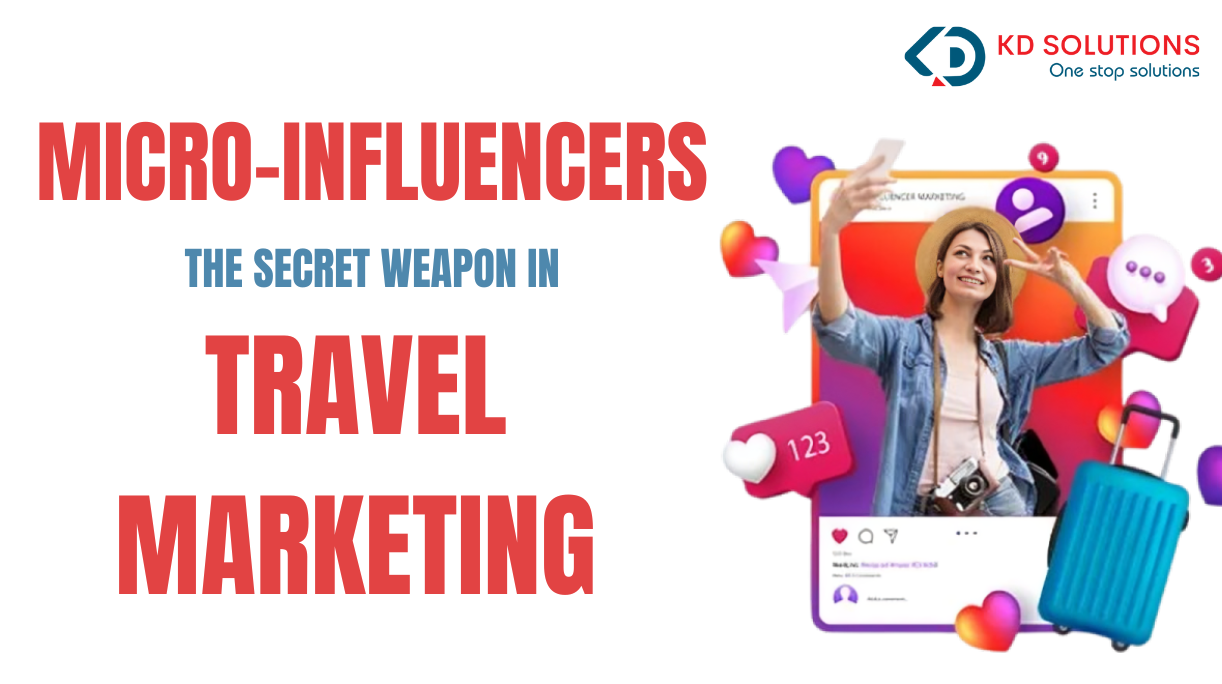In today’s fast-paced digital world, having an online presence is essential for any business. For the travel industry, this is even more critical as competition is fierce and travelers are increasingly turning to the internet for their travel planning needs. If you run a travel agency, tourism business, or any related service, optimizing your website for SEO (Search Engine Optimization) can give you the edge needed to stand out.
SEO is a powerful tool that ensures your website ranks higher on search engine result pages (SERPs) and attracts more traffic. When done right, SEO can drive more qualified leads, increase bookings, and help you build brand authority. In this blog, we’ll explore the importance of SEO for travel websites and share actionable tips on how to optimize your travel website for SEO success.
The Role of SEO for Travel Websites
SEO for travel companies is crucial for visibility and online success. It ensures your website is visible to potential customers who are searching for travel-related services, whether it’s booking flights, accommodations, or tours. The role of SEO for a travel website goes beyond just ranking higher; it’s about providing a seamless experience to users and ensuring that they find exactly what they need. A well-optimized travel website helps build credibility, increases organic traffic, and enhances user experience.
To achieve SEO success, you need to understand the various elements that affect your website’s ranking and how you can leverage them to your advantage.
Keyword Research: The Foundation of Travel SEO
One of the first and most important steps in optimizing your travel website is to conduct thorough keyword research. Identifying the right SEO keywords for your travel agency will help you target potential customers who are actively searching for your services.
Start by focusing on high-traffic keywords that are relevant to your services, such as “travel blog SEO,” “SEO for travel agencies,” and “travel website SEO.” Additionally, consider using long-tail keywords like “best digital marketing agency for travel in Ahmedabad” or “tourism digital marketing strategies” to capture niche markets.
Here are a few tips for effective keyword research:
- Use SEO tools like Google Keyword Planner, SEMrush, or Ahrefs to identify high-ranking keywords in your niche.
- Look for keywords with high search volume but low competition to maximize your chances of ranking higher.
- Analyze the search intent behind each keyword. Are users looking to book a trip, research destinations, or find travel advice? Tailoring your content accordingly will help drive more qualified traffic.
On-Page SEO Optimization for Travel Websites
Once you have your target keywords, it’s time to optimize your website’s on-page elements. On-page SEO includes optimizing your website’s content, metadata, and structure to make it easier for search engines to crawl and index your pages. Here’s a checklist to improve your on-page SEO for a travel website:
- Optimize Title Tags and Meta Descriptions
Your title tags and meta descriptions are essential for both search engines and users. They act as a preview of what your page is about and are often displayed in search results. Make sure to include relevant keywords like “SEO for travel agencies” and “Digital marketing for travel” in these areas. Keep your title tags under 60 characters and meta descriptions under 160 characters to ensure they are fully displayed in search results.
- Use Header Tags Effectively
Header tags (H1, H2, H3) help break up content and make it easier for users to read. They also signal to search engines the most important sections of your page. Use H1 for your main title, and H2 for subheadings that include relevant keywords like “SEO for travel company” or “tourism digital marketing tips.”
- Create High-Quality, Engaging Content
Content is at the heart of any successful SEO strategy. For travel websites, this means creating informative, engaging, and original content that provides value to your audience. Whether it’s destination guides, travel tips, or customer testimonials, high-quality content can increase the time visitors spend on your site and lower bounce rates—two factors that Google uses to determine your rankings.
Incorporate relevant keywords naturally throughout your content, but avoid keyword stuffing. A blog about “SEO for travel websites” can explain how search engines rank travel sites and provide tips for improving rankings. You could also create a travel blog SEO section to help clients enhance their own website performance.
- Optimize Your Website’s URL Structure
Ensure your URLs are clean, descriptive, and include relevant keywords. For example, instead of using a URL like www.yoursite.com/page1, use something like www.yoursite.com/seo-for-travel-agencies. This makes it easier for search engines to understand the content of the page and improves your chances of ranking.
- Optimize for Mobile Devices
More than half of all travel searches are conducted on mobile devices. Google also prioritizes mobile-friendly websites in its search rankings. Use responsive design to ensure your website looks and performs well across all devices.
- Improve Page Load Speed
Fast page load times are critical for both user experience and SEO. A slow website can lead to high bounce rates, which negatively impact rankings. Use tools like Google PageSpeed Insights to test your site’s performance and implement changes like compressing images or minimizing scripts to improve load speed.
Off-Page SEO: Building Authority for Your Travel Website
Off-page SEO refers to actions taken outside of your website to improve its authority and ranking. The most important off-page SEO strategy is link-building. Backlinks from high-quality, authoritative websites signal to search engines that your site is trustworthy and relevant.
Here are some tips for building backlinks for your travel website:
- Guest Blogging: Write high-quality, informative guest posts for travel blogs or tourism websites in exchange for backlinks.
- Partner with Influencers: Collaborate with travel influencers and bloggers who can link to your website from their content.
- Local Listings and Directories: Submit your website to online travel directories or local business listings, especially those related to tourism in your region.
A Digital Marketing Agency for Travel can also assist with off-page SEO strategies, providing you with a comprehensive plan that includes backlinking, social media outreach, and other techniques to build brand authority.
Local SEO for Travel Agencies
Local SEO is crucial for travel businesses that cater to a specific geographical area. If your travel agency operates in a particular city, region, or country, local SEO will help you rank higher in location-based searches. Here are a few ways to improve local SEO for travel businesses:
- Claim Your Google My Business Listing: Ensure your business profile is complete with accurate contact information, location, photos, and reviews.
- Encourage Reviews: Positive reviews on platforms like Google, TripAdvisor, and Yelp can enhance your credibility and improve local rankings.
- Local Content Creation: Create content that targets local keywords, such as “best travel agency in Ahmedabad” or “tourism digital marketing for Ahmedabad businesses.”
Technical SEO: The Backbone of Travel Website Optimization
Technical SEO involves optimizing the backend elements of your website to improve crawlability and indexing. This includes aspects like site structure, XML sitemaps, and structured data.
- XML Sitemap: Create and submit an XML sitemap to Google Search Console so that search engines can easily crawl and index your site.
- Structured Data: Implement structured data (Schema markup) on your pages to help search engines understand your content better. This can include adding information about events, local businesses, or travel offers.
- Secure Website: Ensure your website is HTTPS-secured to protect user data and improve rankings, as Google favors secure websites.
Digital Marketing for Travel: Combining SEO and Paid Strategies
While SEO is essential, combining it with other digital marketing strategies can elevate your results. Paid advertising (PPC), social media marketing, email marketing, and content marketing can all complement your SEO efforts. A Travel SEO Agency can help you create a comprehensive digital marketing plan that aligns with your business goals and drives more qualified traffic to your site.
KD Solutions The Best Digital Marketing Agency in Ahmedabad
When it comes to optimizing your travel website for SEO success, partnering with a reliable digital marketing agency can be a game-changer. Best KD Solutions, a leading digital marketing agency in Ahmedabad, specializes in SEO for travel agencies, tourism digital marketing, and travel website SEO. Their expert team understands the unique challenges of the travel industry and uses cutting-edge strategies to improve your online presence and drive organic traffic to your website.
FAQ
SEO for travel agencies involves optimizing your website to rank higher in search engine results. It’s crucial because it helps potential customers find your services online, increasing visibility and driving more traffic to your site.
You can improve your travel website SEO by conducting keyword research, optimizing on-page elements like title tags and meta descriptions, creating high-quality content, building backlinks, and ensuring your website is mobile-friendly.
? SEO keywords for a travel agency could include terms like “best travel destinations,” “cheap flights,” “tour packages,” “SEO for travel company,” “tourism digital marketing,” and “digital marketing for travel and tourism.”
You can use tools like Google Analytics, Google Search Console, and PageSpeed Insights to check your website’s performance and identify areas for improvement. A digital marketing agency can also conduct a comprehensive SEO audit for you.
A digital marketing agency can provide expert insights, save time, and help implement advanced strategies that are difficult to manage in-house. They can optimize your website for SEO, run paid ad campaigns, and offer ongoing support.
SEO results can take anywhere from 3 to 6 months to become visible, depending on the competitiveness of your industry and the quality of your optimization efforts.
Digital marketing for travel agencies helps attract and convert leads through various online channels like SEO, PPC, social media, and email marketing. It’s vital for growing your business in a competitive digital environment.






